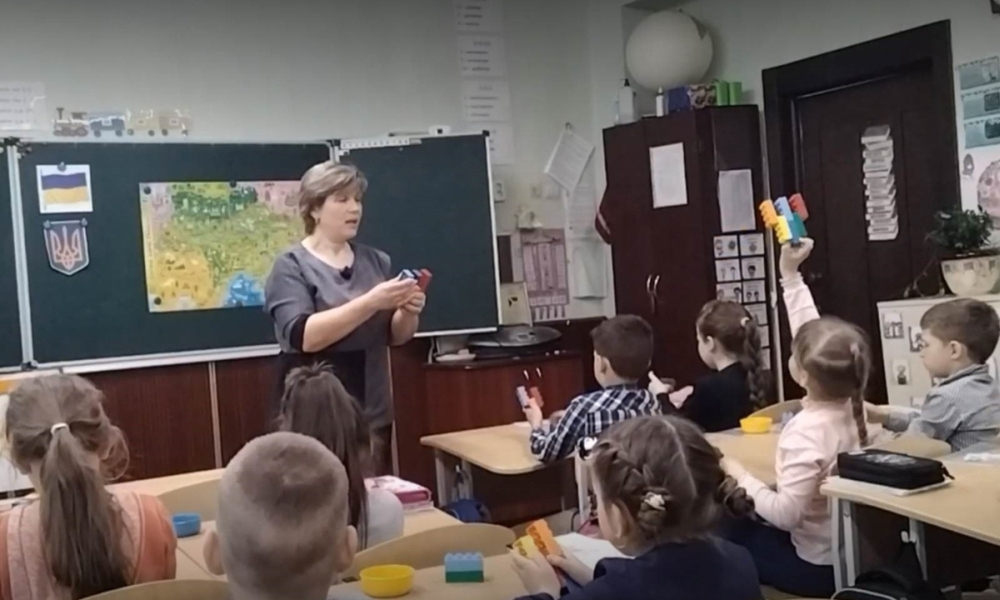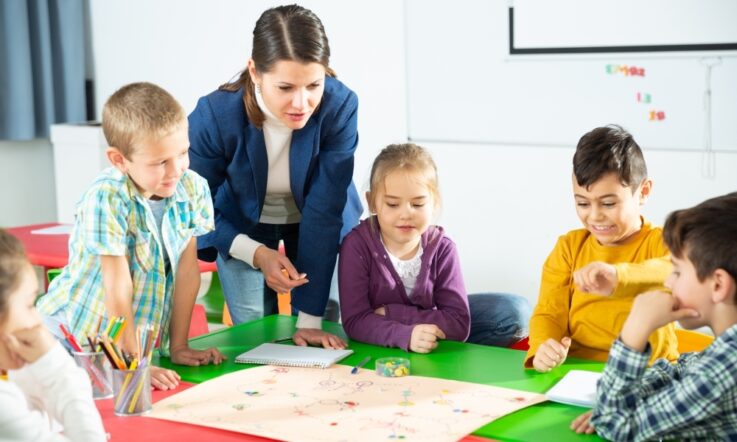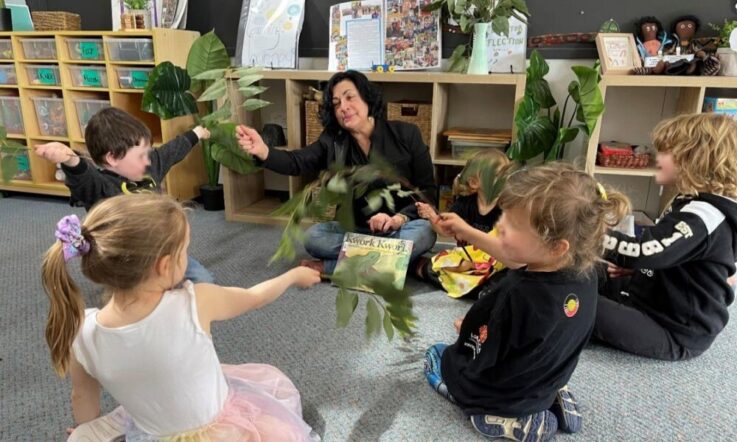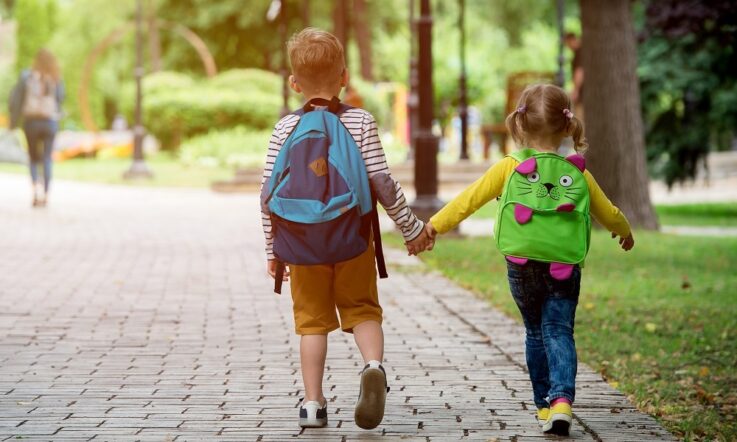As an educator, you’ll recognise the importance of providing time for young children to play and to learn through play. However, findings from a 4-year study conducted in Ukraine suggest that playful learning can be a protective factor for children, fostering literacy and social-emotional skills during times of crisis.
The project was led by the Australian Council for Educational Research (ACER) and the LEGO Foundation, with support from the Ukrainian Educational Research Association (UERA).
Writing in Discover, ACER Senior Research Fellow Rachel Parker says more than 50 researchers contributed to the groundbreaking Learning Through Play at School Research Study, which took place in Ukraine between 2019 and 2024.
As one teacher involved in the study said, ‘Especially nowadays when children’s emotional state is not very balanced, [Learning Through Play] allows us not only to learn but also to balance the child’s emotional state, which is very important.’
Parker reports the research found greater improvements in the literacy and social-emotional skills of students in Ukraine that learnt through play than those that did not.
These findings provide valuable insight into the impact learning through play can have on student growth and wellbeing, and can be used by schools considering their own teaching practices.
The study and its findings
The study comprised 30 teachers and 1,500 students from primary schools in 5 provinces of Ukraine, and aimed to measure the literacy and social-emotional skills of primary students that learn through play.
The study compared results of an intervention group of teachers – who undertook a 2-year professional learning program, based on LEGO foundations’ definitions for play and learning – and a control group.
Using a rubric, students were then assessed as they interacted with playful items and scenarios. They were assessed on their:
- expressive oral language
- listening comprehension
- empathy
- self-awareness
- self-regulation
- problem-solving
- conflict resolution
‘Despite the educational challenges posed by the COVID-19 pandemic and the war in Ukraine, most students still experienced learning growth over the study period,’ Parker writes.
‘The control group – which had a lower proportion of disadvantaged students than the intervention group (25% compared to 44%) – had a higher average score in all assessments. However, we measured greater growth among students in the intervention group.
‘The average literacy score in the control group grew by 8.86 points by the end of grade 3. In the intervention group, it grew by 10.29 points.
‘Similar results were found in measuring social-emotional skills; the average score increase was 10.72 points in the control group and 12.26 points in the intervention group.’
She adds that, over time, teachers in the intervention group felt that their students became more capable of problem solving. Based on the feedback of teachers involved in the study, it was also clear that they enjoyed seeing the positive impact playful learning was having on their students.
‘They considered themselves architects … dreaming, fantasising, drawing, making, and it was very interesting,’ one teacher said of an exercise on designing the perfect school.
Another commented: ‘Before there was no such thing [as self-directed learning]; the children weren’t involved. Before, they just retold the information, and that was it …. Now, it’s inspiring.’
The full findings are available in 2 reports (Parker et al., 2024a and 2024b).
To find out more about the study, read the full article, Playful learning supports student growth in times of crisis, by Rachel Parker, published in ACER’s Discover.
References and related reading
Parker, R., Berry, A., Picker, K., Jeffries, D., Anderson, P., & Zabolotna, O. (2024a). Learning Through Play at School Ukraine: Final Research Report. Australian Council for Educational Research. https://doi.org/10.37517/978-1-74286-738-0. (This report is also available in Ukrainian)
Parker, R., Berry, A., Picker, K., Jeffries, D., Anderson, P., & Zabolotna, O. (2024b). Learning Through Play at School: Ukraine, 2019-2024. Australian Council for Educational Research. https://research.acer.edu.au/learning_processes/36
Parker, R., & Thomsen, B. (2019). Learning through play at school: A study of playful integrated pedagogies that foster children’s holistic skills development in the primary school classroom. LEGO Foundation. https://learningthroughplay.com/explore-the-research/why-school-time-is-playtime
What activities and lessons do you teach that allow your students to learn through play?
What opportunities are there for you to connect with relevant teaching concepts and research to help with your teaching? Do you feel supported to learn and build skills that can support you in implementing a range of teaching methods in your classroom?
Does your school have policies and procedures in place to support students that may need help dealing with issues they are facing? Do you know what these are?
For more information about tools and frameworks for learning through play at school please contact Rachel.Parker@acer.org, Amy.Berry@acer.org, or Kellie.Picker@acer.org



